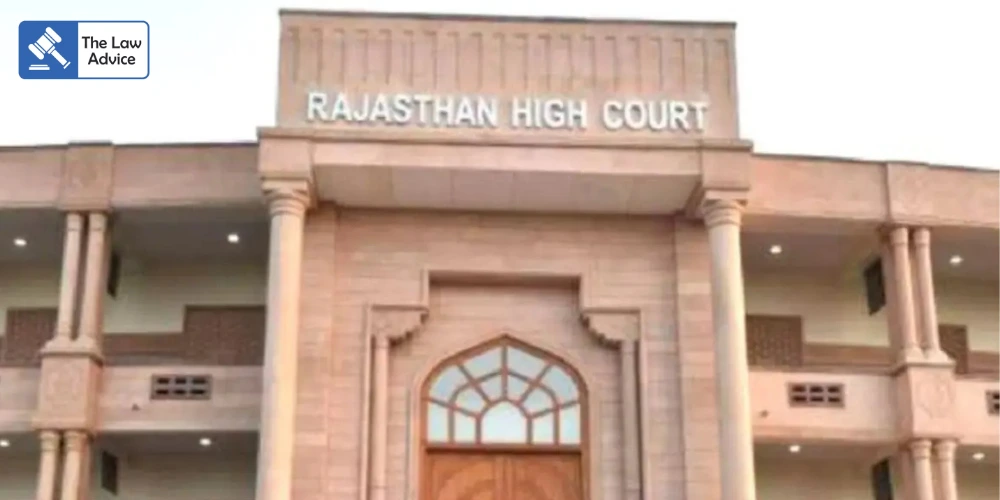In a significant ruling on the standard of proof required in claims of juvenility, the Rajasthan High Court has clarified that such an enquiry is not akin to a full-fledged criminal trial where allegations must be proved beyond all reasonable doubt. Instead, if two possible views exist, the benefit should go to the accused in borderline cases.
The decision was delivered by Justice Sandeep Shah, while dismissing a petition challenging the trial court’s order that had declared the accused a juvenile in a case under the Protection of Children from Sexual Offences Act (POCSO).
The Court emphasised that the enquiry under the Juvenile Justice (Care and Protection of Children) Act, 2015, particularly under Sections 9 and 94, must not be treated as a criminal trial under the Bharatiya Nagarik Suraksha Sanhita (BNSS). Instead, it is a statutory enquiry with a lower threshold of proof.
“…the enquiry should not be a roving enquiry to go behind each and every certificate… only where documents are found to be fabricated or manipulated should medical testing be ordered,” the Court held, underlining that matriculation certificates, birth records, or school documents carry strong evidentiary value unless proven otherwise.
Justice Shah clarified that Section 94 of the Act lays down a clear hierarchy for determining juvenility:
1. First priority – Date of birth certificate from the school or matriculation certificate issued by the relevant Examination Board.
2. Next – Birth certificate issued by a municipal authority, corporation, or panchayat.
3. Last resort – Ossification test or medical age determination, if the above documents are unavailable or unreliable.
The Court observed:
“…if so-called documents are available, then there is no requirement for the Court, the Board or the Committee to go for medical test for age determination.”
The petitioner had challenged the trial court’s decision on several grounds:
• The application for juvenility was filed for the third time, after being withdrawn on earlier occasions, and at a belated stage when the trial was nearly complete.
• It was argued that the application was barred by res judicata and not maintainable so late in the proceedings.
• The reliance on the matriculation certificate and Aadhaar card was disputed, as the authenticity of the recorded age in the matriculation certificate was unclear.
The petitioner further alleged that the respondent’s father’s signature on a prosecution-issued age certificate was forged, since he usually signed in Hindi but the signature appeared in English.
Rejecting the petitioner’s arguments, the Court held:
• The matriculation certificate, Aadhaar card, and other school documents produced by the respondent were sufficiently proven and carried evidentiary value.
• The prosecution failed to establish that these records were fabricated or manipulated.
• The matriculation certificate alone was adequate proof of age, as long as it was not alleged to be forged.
On the issue of delay in filing the application, the Court stressed that the purpose of the Juvenile Justice Act would be defeated if a claim of juvenility was denied simply because it was raised at the fag end of the trial or even later. Section 9 of the Act expressly allows such claims at any stage, even after conviction.
“…the very purpose of the Act would be defeated if the child in conflict with law was not permitted to raise the ground of juvenility at the fag end of the trial or even subsequent thereto,” the Court observed.
Accordingly, the High Court upheld the trial court’s order recognising the accused as a juvenile and dismissed the petition.
The judgment reinforces the principle that the juvenile justice framework must prioritise rehabilitation and child protection over procedural rigidity. By clarifying that the standard of proof is not beyond reasonable doubt, the Court has ensured that children in conflict with the law are not unjustly deprived of statutory protections, especially in borderline cases.
